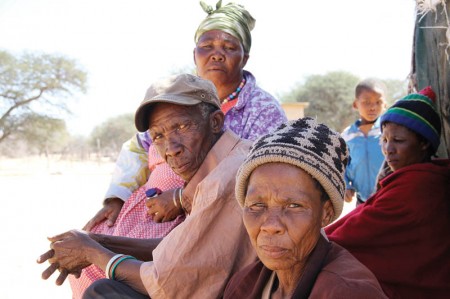Mother�s Day: Calling all angels
Baboki Kayawe | Friday May 6, 2016 11:16


The country’s history, scarcely recorded as it is in books, is largely that of men, their achievements, their failures and their contributions.
It is written and reported from the point of view of men, local and foreign. From the Three Chiefs, to the founding ‘fathers’, to the breadwinners who worked the mines in South Africa, men dominate the narrative.
The history of the mothers of the country is a story barely told, an account largely unrecognised and a contribution taken for granted.
The women who stayed home, bore children, raised them, inculcated values and norms, formed and defended the structures of society, while the patriarchs founded the Republic and worked the mines, are heroes too.
Their story is untold, but through Mother’s Day, each of us has an opportunity to honour them and remember their sacrifice.
Mothers often risk their own health to bring forth life. It is the mothers who accommodate life in them until the young one has a life of their own. Throughout the journey to bring life, the mother shares food, oxygen and everything with their unborn baby.
The journey does not always have a great outcome. According to the latest data, the country’s maternal mortality ratio, has been fluctuating over the years, with an average of 81 women dying every year while giving birth.
The majority of these deaths were women aged between 20 and 34, which also represent the prime child-bearing age. After the dangers and tortures of childbirth, the real work begins for mothers, as they have to nurture and nurse their babies from a very delicate and fragile state to a level where they can face the world on their own.
While family is the cornerstone of human life, mothers are the cornerstones of the family. The same bond knitted in pregnancy is continued after birth, as the mother knits together her family. Mothers are strong individuals who are tasked with the mammoth role of instilling positive values into their progeny. Human characteristics such as respect are first observed from mothers, and caregivers – who in most cases are women. In fact, from the behaviour of a toddler, one can tell the quality of the socialisation process given by the mother.
A toddler whose mother is lazy to train and maintain a urinary timetable for the infant, is more prone to wetting their clothes, while better bladder control is often a sign of more stringent mothering.
Besides instilling hygiene, this simple life lesson teaches the significance of adhering to routine and timeliness. These same principles are carried forward in life to arrest bad behaviour such as late coming, laziness and related vices.
It is also worth noting that during a child’s formative years and when they start talking, they reflect their mother or caregiver.
This is to say the young ones are very likely to use the vocabulary they pick from their mother or nannies—who are in fact their mothers as well. Kindness, respect and good language use are taught during the early development years. And it is mothers, who usually assume the role of disciplinarians who can sustain these virtues and many more to mould a socially acceptable individual. Mothers deserve the honour and support under the sun.
Over the decades, the number of female-headed households has increased, largely as a result of HIV/AIDS and father abandonment.
Many households are now headed by mothers who are the primary caregivers and breadwinners while an associated trend of young single mothers has also taken hold in the country.
With fathers in the wind, increasingly the average household in Botswana consists of a mother taking care of her daughter and grandchildren.
The scenario is a heavy challenge for women who are already the victims of patriarchal discrimination in the workplace that has resulted in lower incomes, fewer employment opportunities and greater unemployment.
Though some women are single mothers by choice, preferring to have a baby and not staying with the father that is, female-headed families are often the result of widowhood, divorce and the mother never having been married.
Even though mothers are the lifeblood of families, they cannot achieve family-building and the instalment of good morals on their own. They need to be supported by fathers, male societal figures and all other critical structures, which include policies and programmes empowering mothers, protecting their health, defending their rights and recognising their importance.
The absence of such support can only lead to the decline of social, economic and the well-being of family, which in turn is the building block of the community and by extension the nation.
As the world celebrates, we take our hats off to all the mothers of Botswana!
Women who taught and continue to teach discipline, responsibility and all the positive virtues in life, we see you. To all the mothers whose dream of motherhood was cut short by misfortunes such as miscarriages and infant mortality, to all the mothers whose hearts are bleeding as their children have gone wild and turned a deaf ear to motherly advice, to all the mothers who brought up step-children, adopted and assimilated children with love, to all the nannies who are doing mothering as a full time career and to all the ‘men’ who have assumed motherly duties to nurture life and keep family closely knit, Mmegi honours you!
